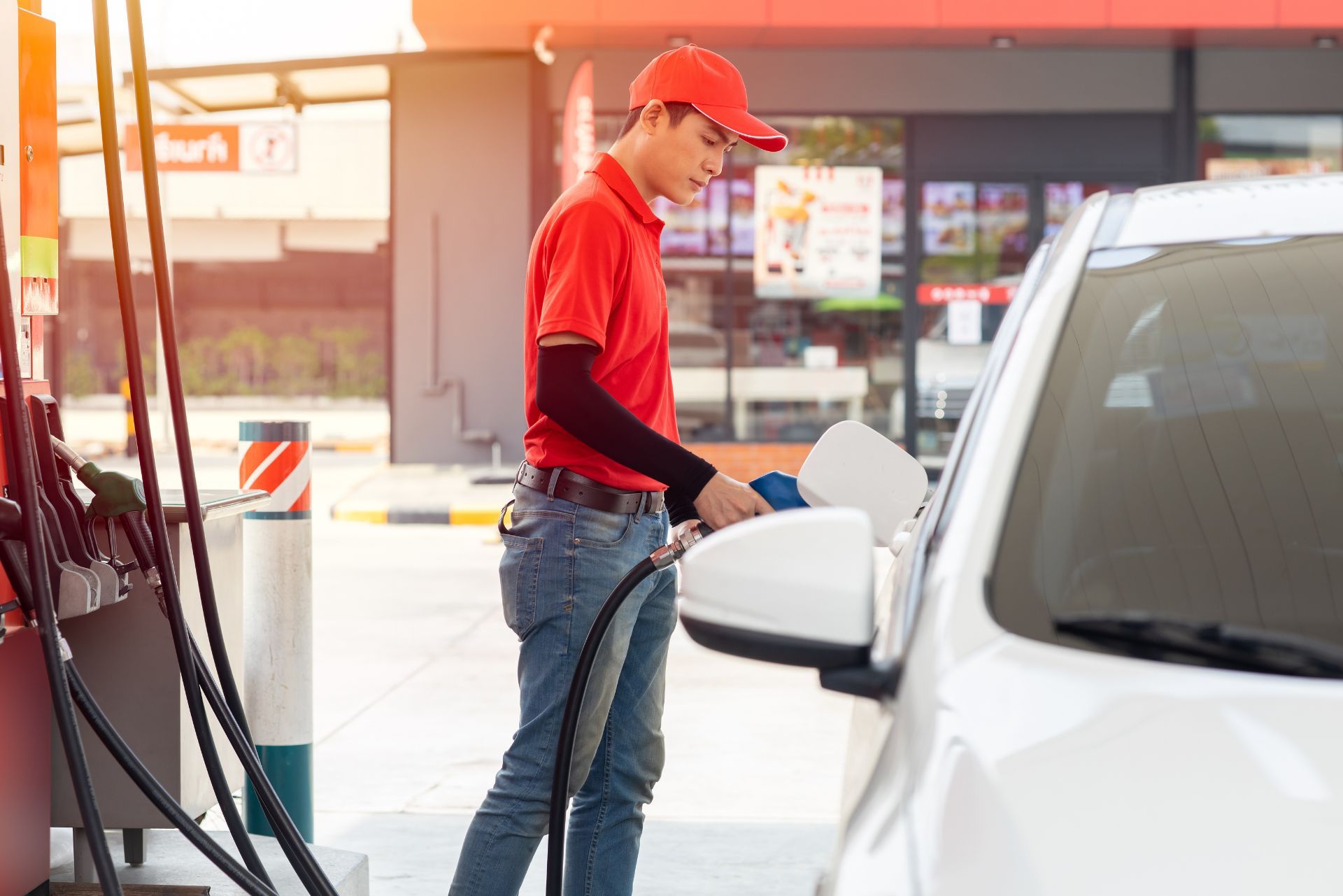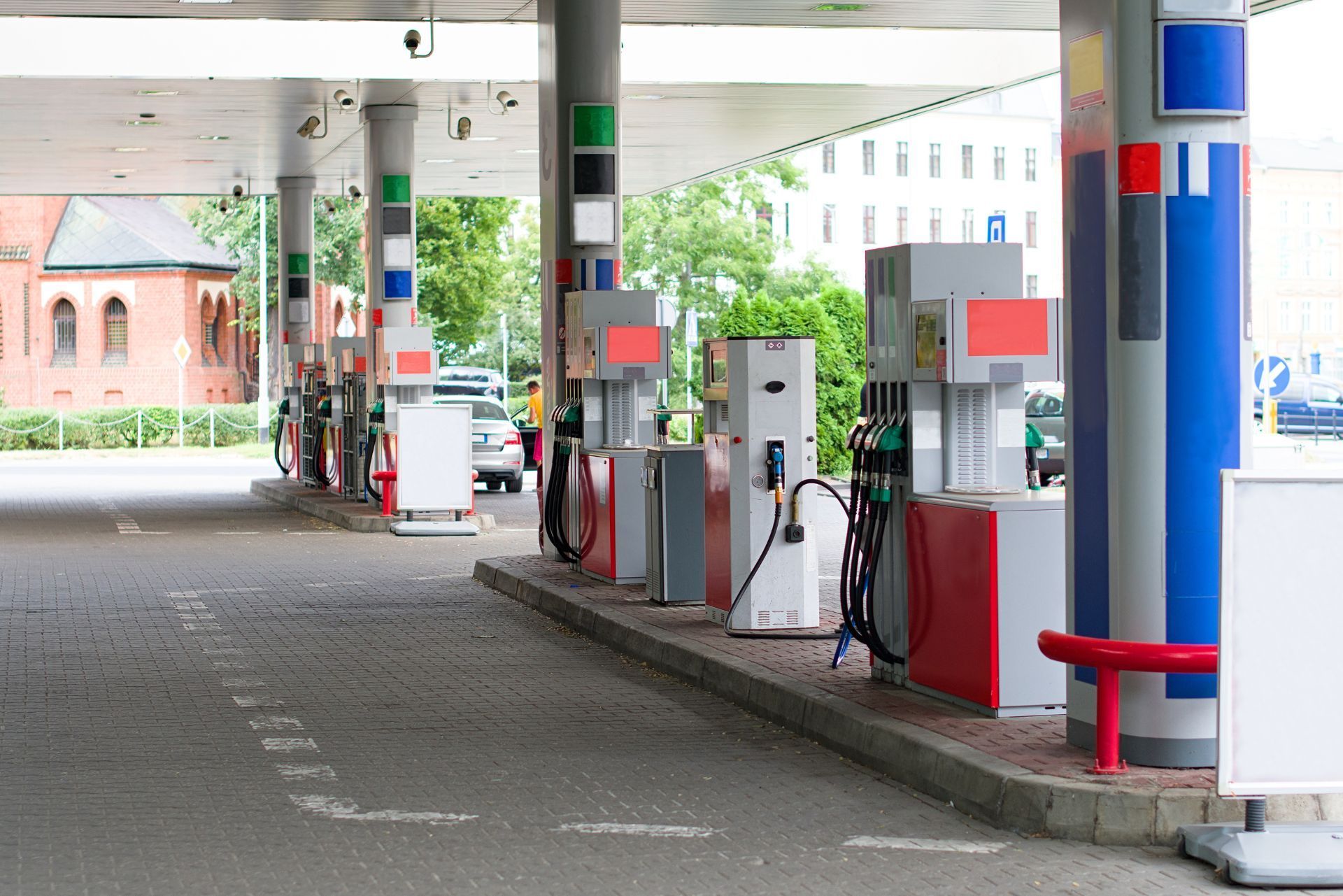Top 3 Recommended Policies

Operating a gas station franchise in Florida comes with unique challenges, especially when it comes to insurance. From rising premiums to the impact of severe weather, understanding the insurance landscape is crucial for franchise owners seeking to protect their investments. This comprehensive guide explores the key factors influencing insurance for Florida gas stations, the reasons behind escalating costs, and strategies to navigate this complex market effectively.
Florida’s insurance environment has been notably volatile, with many insurers adjusting their policies or even exiting the market. For example, some companies have stopped writing new auto insurance policies in the state due to perceived high risks, a trend that also affects commercial insurance sectors like gas stations. To grasp the full picture, it’s important to delve into why insurance premiums are soaring and what franchise owners can do in response. For more detailed insights on the insurance challenges in Florida, visit this report on rising insurance premiums for Florida gas stations.
Why Are Insurance Premiums Rising for Florida Gas Stations?
One of the most pressing concerns for gas station franchise owners in Florida is the sharp increase in insurance premiums. Owners like Alex Fernandez have reported that their premiums more than doubled within a year, primarily due to enhanced wind coverage requirements for pump canopies. These canopies, while essential for customer comfort and safety, are particularly vulnerable to Florida’s frequent windstorms and hurricanes.
Insurance companies classify gas stations as high-risk properties. According to Robert Norberg of Arden Insurance, the exposure to wind damage and the potential for costly claims make these businesses a challenging risk to underwrite. This high-risk perception drives insurers to increase premiums or impose stricter coverage conditions, which directly impacts franchise owners’ operating costs.
Furthermore, the broader Florida insurance market has been affected by factors such as increased reinsurance costs and litigation expenses, which have contributed to premiums rising faster than inflation. These systemic pressures make it harder for insurers to offer affordable coverage, pushing costs onto policyholders. For a deeper understanding of these cost drivers, see the analysis provided by Insurance News Net on insurance cost increases in Florida.
In addition to the immediate financial burden, the rising premiums also have a ripple effect on the operational strategies of gas station owners. Many are now forced to reconsider their business models, which may include reducing staff hours, cutting back on maintenance, or even limiting the services they offer to customers. The pressure to maintain profitability in the face of escalating costs can lead to a decline in service quality, which ultimately affects customer satisfaction and loyalty. Franchise owners are also exploring alternative risk management strategies, such as investing in more robust infrastructure or seeking out specialized insurers who might offer more competitive rates.
Moreover, the situation is compounded by the unique geographical and climatic challenges that Florida presents. With its long coastline and susceptibility to severe weather events, gas stations must not only contend with the immediate threat of storms but also the long-term implications of climate change. This has led to discussions within the industry about the need for more comprehensive disaster preparedness plans and the potential for government intervention to stabilize the insurance market. Stakeholders are increasingly advocating for reforms that would address the underlying issues driving up costs, hoping to create a more sustainable environment for gas station operations in the state.

Impact of Florida’s Insurance Market Dynamics on Gas Station Coverage
The Florida insurance market has experienced significant instability over the past decade, with many insurers suffering losses and some exiting the state altogether. Notably, companies such as Farmers Insurance and AAA have ceased writing new auto insurance policies in Florida, highlighting the perceived risk and volatility in the region’s insurance environment. This trend extends into commercial policies, including those for gas stations, where insurers are increasingly cautious.
Despite these challenges, recent reports indicate a modest recovery in the Florida insurance market. According to S&P Global, Florida’s domestic insurers recorded a net profit of $147.3 million in 2023, marking the first profit in seven years. This turnaround is partly attributed to legislative reforms aimed at curbing fraudulent claims and improving market stability. The R Street Institute discusses how these reforms have positively impacted the homeowners’ insurance market, which shares some risk characteristics with commercial insurance sectors like gas stations.
For franchise owners, this evolving landscape means that while premiums remain high, there may be opportunities for more stable coverage options as the market continues to recover. Staying informed about these shifts is crucial for negotiating better terms and understanding the long-term outlook. More on these market trends can be found at R Street Institute’s commentary on Florida’s insurance market recovery.
Additionally, the unique nature of gas station operations in Florida adds another layer of complexity to insurance considerations. Gas stations often face specific risks, including fuel spills, equipment malfunctions, and liability claims stemming from customer accidents. These factors contribute to the higher premiums that franchise owners encounter. Moreover, the increasing prevalence of electric vehicles and the push for greener energy solutions may also influence the insurance landscape, as gas stations adapt to changing consumer preferences and regulatory environments.
Furthermore, the role of technology in risk management cannot be overlooked. Many gas stations are now implementing advanced monitoring systems to track fuel levels, detect leaks, and enhance overall safety protocols. These innovations not only help mitigate risks but can also lead to potential discounts on insurance premiums as insurers recognize the proactive measures taken by business owners. As the Florida insurance market continues to stabilize, it will be essential for gas station owners to leverage these technologies and stay abreast of evolving insurance products tailored to their specific needs.
Key Coverage Considerations for Florida Gas Station Franchises
When securing insurance for a gas station franchise in Florida, it is essential to understand the specific coverage components that address the unique risks associated with this business type. Windstorm coverage is a critical element, especially for protecting pump canopies and other outdoor structures vulnerable to hurricane-force winds. Given the frequency of severe weather events in Florida, this coverage often leads to higher premiums but is indispensable for mitigating potential losses.
In addition to wind coverage, liability insurance is vital due to the public nature of gas stations and the potential for accidents on-site. This includes coverage for slip-and-fall incidents, environmental liability related to fuel storage, and general business liability. Comprehensive property insurance should also cover damage from fire, theft, and vandalism, all of which are risks that gas stations face regularly.
Franchise owners should also consider the impact of technological advancements in insurance. The increasing use of AI and IoT devices is transforming risk assessment and claims processing, potentially enabling more tailored and cost-effective insurance solutions. For insights into how technology is reshaping insurance, Chambers and Partners provide a detailed overview.
Moreover, it's important for franchise owners to stay informed about specific regulations and compliance requirements that may affect their insurance needs. Florida's Department of Environmental Protection, for instance, enforces strict guidelines regarding the storage and handling of fuel, which can have significant implications for liability coverage. Non-compliance not only poses environmental risks but can also lead to hefty fines and increased insurance costs. Therefore, understanding these regulations is crucial for maintaining both operational integrity and financial stability.
Additionally, gas station franchises should explore business interruption insurance, which can provide a safety net in the event of unforeseen closures due to natural disasters or other emergencies. This type of coverage can help cover lost income and ongoing expenses, allowing business owners to recover more quickly. Given Florida's susceptibility to hurricanes and tropical storms, having a robust business interruption policy can be a game-changer, ensuring that franchise owners can weather the storm—both literally and figuratively—without facing crippling financial setbacks.

Strategies to Manage and Reduce Insurance Costs
While rising insurance premiums pose a challenge, Florida gas station franchise owners can adopt several strategies to manage and potentially reduce their insurance costs. One effective approach is investing in risk mitigation measures such as reinforcing pump canopies to withstand high winds and implementing robust safety protocols to minimize liability risks. These proactive steps not only enhance safety but can also lead to lower premiums as insurers often reward businesses that take preventive measures seriously.
Regular maintenance and upgrades to fuel storage tanks and dispensing equipment can also reduce the likelihood of environmental claims, which are costly to insurers. Additionally, working closely with insurance brokers who specialize in commercial and franchise insurance can help identify the most appropriate coverage options and negotiate better rates. Brokers can leverage their industry connections to find policies that offer comprehensive coverage at competitive prices, ensuring that franchise owners are not overpaying for unnecessary coverage.
Franchise owners should also stay informed about legislative changes and market developments, as these can influence insurance availability and pricing. For example, recent legislative reforms in Florida have contributed to a more stable insurance market, which may eventually translate to more competitive premiums. Monitoring these trends through reliable sources like The Insurer’s analysis of Florida’s market stabilization can provide valuable guidance. Furthermore, engaging with local trade associations can offer insights into collective bargaining opportunities for insurance, where franchise owners can band together to negotiate better terms with insurers.
Another important strategy involves conducting regular employee training sessions focused on safety and compliance. By fostering a culture of safety, franchise owners can significantly reduce the risk of accidents and claims, which can lead to lower insurance costs over time. Moreover, implementing a comprehensive employee handbook that outlines safety procedures and emergency protocols can serve as a valuable resource for staff, ensuring that everyone is on the same page when it comes to maintaining a safe working environment. This not only protects employees but also enhances the overall reputation of the franchise, making it a more attractive prospect for insurers.
Finally, considering alternative insurance models, such as self-insurance or captives, might be beneficial for larger franchise operations. These options allow businesses to retain more control over their insurance costs and claims processes, potentially leading to significant savings in the long run. However, it’s essential for franchise owners to carefully assess their risk tolerance and financial capacity before venturing into these alternative insurance strategies, as they require a solid understanding of both the risks involved and the potential benefits they can offer.
Conclusion: Navigating Florida’s Insurance Landscape for Gas Station Franchises
Insurance for gas station franchises in Florida is a complex and evolving challenge, shaped by high-risk perceptions, severe weather exposure, and broader market dynamics. Rising premiums driven by windstorm coverage requirements and systemic cost pressures require franchise owners to be proactive in managing their insurance needs.
Understanding the factors behind premium increases, the impact of market reforms, and the role of emerging technologies can empower gas station owners to make informed decisions. By focusing on risk mitigation, leveraging expert advice, and staying abreast of legislative and market changes, franchise owners can better protect their businesses and navigate Florida’s challenging insurance environment.
For ongoing updates and expert insights into Florida’s insurance market, it is advisable to consult trusted industry sources regularly and maintain open communication with insurance providers. This approach ensures that gas station franchises remain resilient and well-covered in the face of Florida’s unique risks and opportunities.
Contact Us


